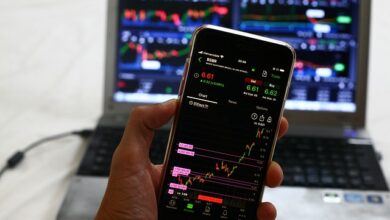How to Register for a Belgian National Number

The Belgian national number, also known as the National Registry Number (Numéro de Registre National/Rijksregisternummer) , is a unique identifier assigned to individuals residing in Belgium. It plays a crucial role in accessing various services, including healthcare, banking, employment, and government benefits. If you’re planning to live, work, or study in Belgium, obtaining this number is essential. Here’s a comprehensive guide on how to register for a Belgian national number.
1. Who Needs a Belgian National Number?
You will need a national number if:
- You are moving to Belgium to live for more than three months.
- You are working or studying in Belgium.
- You require access to public services such as healthcare or social security.
- You are registering as a resident in Belgium.
This applies to both EU/EEA citizens and non-EU nationals.
2. Step-by-Step Guide to Registering for a National Number
Step 1: Prepare Required Documents
Before beginning the registration process, ensure you have the following documents ready:
- Valid Passport or ID Card : Your primary identification document.
- Proof of Address : A rental agreement, utility bill, or other official document showing your Belgian address.
- Residence Permit (if applicable) : Non-EU citizens must provide their residence permit or visa.
- Birth Certificate : An official copy may be required, especially for long-term stays.
- Marriage Certificate (if applicable) : If you’re registering as part of a family unit.
- Work or Study Documentation : Proof of employment, enrollment in a Belgian institution, or any other reason for your stay.
For non-EU citizens, additional documents such as a work contract or student visa may be necessary.
Step 2: Visit the Local Municipality Office
Registration for a national number takes place at the municipal administration office (administration communale/gemeentehuis) in the area where you plan to reside. Here’s what to expect:
- Schedule an Appointment : Many municipalities require you to book an appointment in advance. Check the website of your local municipality for details.
- Submit Your Documents : Present all required documents to the municipal staff. They will verify your information and begin the registration process.
- Complete the Registration Form : Fill out any forms provided by the municipality. These forms typically ask for personal details, contact information, and the purpose of your stay.
Step 3: Wait for Processing
Once your application is submitted, the municipality forwards your information to the National Register (Registre National/Rijksregister) . The processing time varies but usually takes 1-2 weeks . During this period:
- You may receive a temporary registration certificate to use until your national number is issued.
- Ensure your contact information is up-to-date in case the municipality needs additional details.
Step 4: Receive Your National Number
After processing, you will receive your national number. This number is composed of 11 digits and is based on your date of birth. For example:
- Format: YYMMDDXXX-XX
- Example: 850321123-45 (for someone born on March 21, 1985)
Your national number will be included in official correspondence from the municipality or other government agencies. Keep it safe, as you’ll need it for various administrative tasks.
3. Special Cases
EU/EEA Citizens
As an EU/EEA citizen, you can register directly at the municipality without needing a visa. However, you must still provide proof of your right to reside in Belgium, such as a work contract or proof of sufficient financial resources.
Non-EU Citizens
Non-EU citizens must first obtain a residence permit or visa before registering for a national number. The immigration office (Office des Étrangers/Alien Office) will coordinate with the municipality to finalize your registration.
Children
If you’re registering children, they will also receive their own national numbers. Bring their birth certificates and any relevant family documentation.
4. What Can You Do With a National Number?
Once you have your national number, you can:
- Access healthcare services and obtain a medical card (eID card).
- Open a bank account in Belgium.
- Apply for social security benefits or unemployment allowances.
- Enroll in education or training programs.
- Pay taxes and file tax returns.
- Vote in local elections (for eligible residents).
It’s essentially your key to integrating into Belgian society.
5. Common Challenges and Tips
- Language Barrier : Municipal offices often operate in Dutch, French, or German, depending on the region. Consider bringing a translator or using translation apps if needed.
- Missing Documents : Double-check that you have all required documents before your appointment to avoid delays.
- Long Wait Times : Some municipalities experience high demand, so schedule your appointment early and be patient during busy periods.
6. Additional Resources
For further assistance, consult these resources:
- Belgian Government Website : https://www.belgium.be
- Local Municipality Websites : Search for your municipality’s official site for specific instructions.
- Immigration Office : For non-EU citizens, visit https://dofi.ibz.be .



